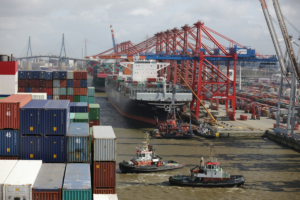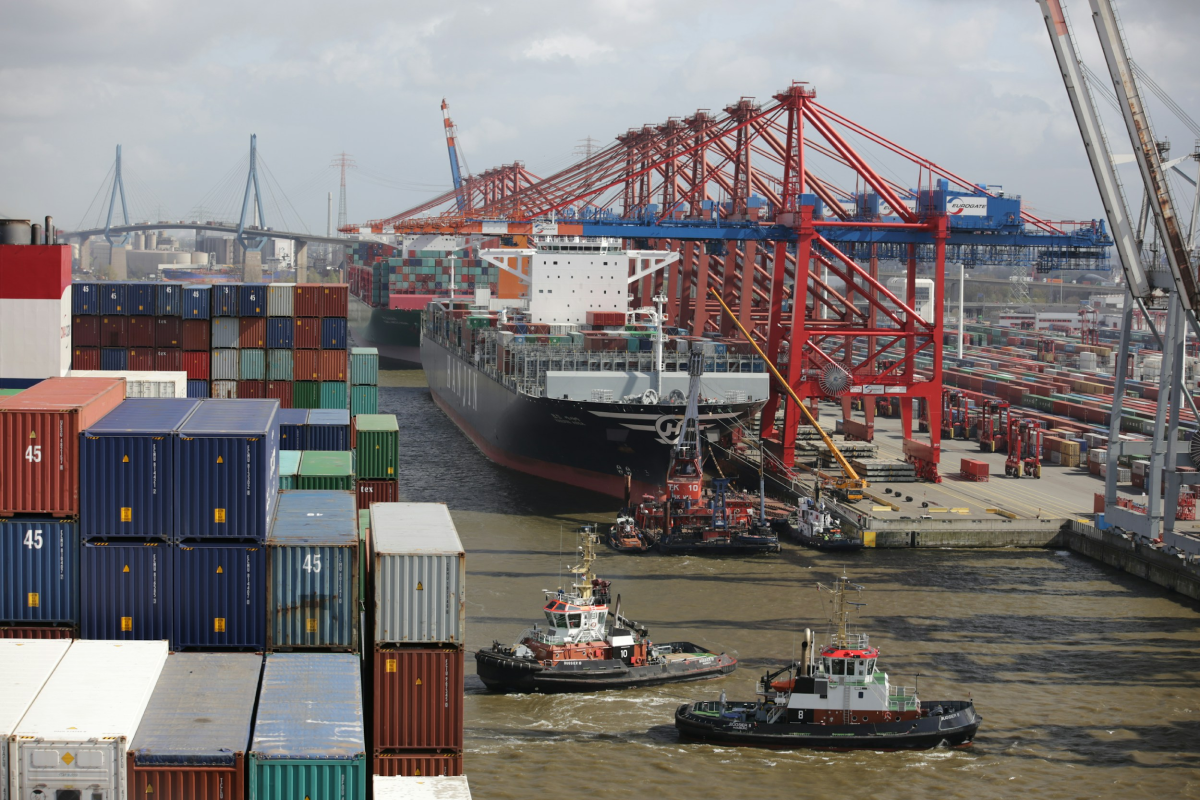Taking The Next Step in Sustainable Logistics
The increased number of deliveries and returns in recent years brought about a growing concern with the environmental impact of online shopping. As the global supply chain is pushed to a breaking point, and conversations around the climate crisis start to make more headlines, more and more businesses are now moving towards more sustainable practices. Ethical consumer spending hits record high levels in the UK, with customers willing to pay more for a given product if they know it has been ethically and sustainably sourced. According to a Nielsen report,
„Shoppers are now seeking to better understand if a product aligns with their personal values as they have better access and spend more time researching brands and products online. Brands that take the time to highlight elements about the sustainable consciousness of their offerings not only meet these consumer demands, but they stand to win a loyal following while improving conversion.“
So, what does sustainability mean in 2023?

- Defining sustainability: Planet, people, and communities
According to the Brundtland report, sustainability can be defined as „[d]evelopment which meets the needs of current generations without compromising the ability of future generations to meet their own needs.“
Commercial discourses around sustainability tend to focus on environmental sustainability, overlooking the importance of diversity and inclusion policies, and how they are a crucial part of sustainable change. However, sustainability and social responsibility go hand-in-hand, as so often we have seen how the well-being of the planet and of human communities are deeply intertwined.
As Business Wizz explains, a balance between the environmental, the ethical and the social is essential for companies to create truly sustainable businesses. So when we talk about sustainability, we mean not only using recyclable paper and planting trees, but how you are supporting the workers in your offices, factories, and stores.
Ensuring that every worker has their basic needs met through a living wage, as well as a safe and truly inclusive work environment is setting a standard of quality of life for current and future generations, avoiding the unnecessary misery and suffering brought by financial and social inequality. It can also help break cycles of generational poverty due to certain types of people being systematically excluded from higher-paying jobs.
Not only that. More diverse teams tend to be more innovative and empathic. Their different social and cultural backgrounds affords them a richer understanding of the human experience, and brings about new and unique ways of solving problems. Individuals from stigmatised groups can bring valuable insights on how the ways in which businesses operate might be unknowingly harming their surroundings. Diverse teams are also more productive, as they help create a more friendly and nurturing environment for everyone to thrive.
- What is greenwashing?
According to Investopedia, greenwashing refers to the “act of providing the public or investors with misleading information about the environmental impact of a company’s products and operations”.
This is often accomplished “through the use of environmental imagery, misleading labels, and hiding tradeoffs” to lead consumers into believing a company’s product has a greater positive impact than it actually does. The term can also be used for situations where a company highlights the sustainable aspects of a product in an attempt to overshadow their involvement in other environmentally damaging practices.
Throughout the years we have seen several examples of this, as companies have felt the need to promote a sustainable image to keep up with the ever-changing needs and expectations of the market but could not, or did not want to, allocate the resources necessary to successfully do so.
- What retailers can do
Sustainability is a process. No business is 100% ethical, but there are steps that can be taken to fuel change and keep up with the socially and environmentally-minded market. These can be:
- Working with certified partners to offset the carbon emissions of your deliveries
- Resourcing to local suppliers
- Donating to or sharing profit with charity initiatives
- Using recycled and recyclable materials where possible (e.g. on packaging, shipping boxes, marketing flyers and booklets, etc.)
- Promoting diversity and inclusion in your workplace policies
- Embracing energy saving technology
- Taking active measures towards zero waste
- Using refurbished electronics
- Challenges
While this move towards more sustainable eCommerce is objectively a good thing, sustainability doesn’t come without its challenges. Most shoppers now expect businesses to be sustainable, yet they are not willing or cannot afford to pay the ethical bill. Here are some of the key sustainability trends and challenges for businesses in 2023.
Inflation and Recession
In a recent article Raconteur explains how, with the cost of living skyrocketing across the UK and Europe, customers are increasingly switching from sustainable products to cheaper if less eco-friendly alternatives. On the other hand, many businesses have started to face the pressures of the rising economic recession, with manufacturing and services across the board experiencing a significant slow down due to global chain disruptions, energy shortages, and higher interest rates, which directly affects customer spending.
On a more positive note, however, SwiftERM predicts that retail and ecommerce will enjoy a 6.4% growth during 2023. Thus, any successful business in 2023 is one that will be able to effectively merge new sustainability regulations with the new business models emerging from the success of online retail during COVID-19.
Greenhushing
Greenhushing refers to a recent phenomenon where brands fear accusations of greenwashing so much they avoid talking about sustainability altogether, even when they’re taking active steps to improve. With 2021’s Green Claims Code and the public becoming increasingly aware of greenwashing, brands are now being more cautious about environmental claims in their marketing, and experts predict this will be one of the main sustainability challenges for businesses in 2023.
Environmental Litigation
Over the past years, we have seens an increasing number of environmentally related lawsuits against companies due to lack of environmental action and sustainable initiatives. S&P Global predicts 2023 will challenge businesses and investors on the “strength and depth of their sustainability commitments”, with “company and investor lobbying activities” being placed under greater scrutiny.
Labour-market uncertainty
Evolving employee expectations around health, well-being, culture, flexibility and benefits, will push companies to implement new incentive structures and development opportunities to improve employee experience, and effectively attract and retain talent. Citing a 2022 study by McKinsey and Co., S&P has explained how
While total compensation remain[s] important, other factors, including workplace flexibility and meaningfulness of work, have become more instrumental in many workers’ decisions to stay at or leave a job.
With economic conditions predicted to deteriorate in the upcoming years, many companies may struggle to balance employee-friendly practices in the long-term.
- How we can help
Information is the first step of any sustainability effort. Analysing data on deliveries, inventory, and customer behaviour can provide valuable insights for shaping sustainability strategies and enhancing overall efficiency. That is where an order and warehouse management system like Despatch Cloud’s comes in. Here’s how:
- Insights on your purchase orders and stock levels will give you a better understanding of your supply chains, and how you could potentially source your products differently.
- Access to a wide range of couriers will give you more flexibility when choosing the most efficient routes and delivery options.
- Powerful tracking technology will empower you to make better, greener decisions on courier choice, and using smart shipping rules you can set the system to automatically rule out underperforming couriers.
- An efficient returns system can help you better keep track of your resellables and reduce waste in your warehouse(s).
- With Despatch Cloud’s Carbon Neutral solution, you can offset your carbon emissions for a price proportional to the amount of orders you ship. Most importantly, we work with a certified partner, so you can be at peace that your investment is contributing to actual change.






